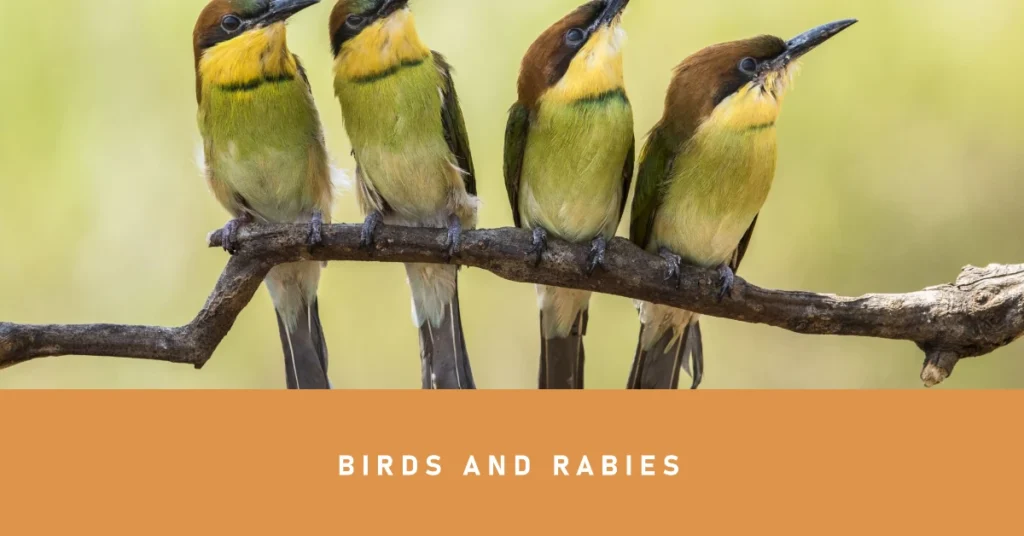
Rabies is a serious viral disease that affects mammals, including humans, dogs, cats, and wild animals like bats, foxes, skunks and raccoons. The rabies virus infects the nervous system and is usually fatal once symptoms appear. But what about birds? Can our feathered friends get rabies too? The answer may surprise you.
Table of Contents
Birds Are Resistant to Rabies Infection
Even though birds are warm-blooded vertebrate animals like mammals, they very rarely get rabies. Scientists have studied this puzzling phenomenon and found several reasons why birds don’t usually get rabies:
- Birds have lower body temperatures than mammals, making it harder for the rabies virus to survive and multiply in their bodies
- Bird cells lack some of the receptors and proteins that the rabies virus needs to enter and infect cells
- Birds have different immune responses that may help them fight off rabies infection more effectively than mammals
So while it is theoretically possible for birds to get rabies, it would be highly unlikely under normal circumstances. There have only been a handful of confirmed cases of natural rabies infection in birds, and most of those were in scavenger birds like vultures that may have eaten infected mammals.
Experimental Rabies Infection in Birds
To study rabies in birds, scientists have artificially infected some bird species with the rabies virus in laboratories. When infected this way, most birds do not show any symptoms and are able to recover and clear the virus from their bodies.
This is very different from mammals, which almost always develop fatal disease when infected with rabies.
However, a few studies have found that some bird species can produce rabies antibodies and even shed small amounts of virus after artificial infection.
This has led to speculation that certain birds could potentially act as carriers of rabies in rare situations. But there is no evidence that birds play any significant role in spreading rabies in the wild.
The Bottom Line on Birds and Rabies
Based on the current scientific evidence, birds are not considered a rabies risk to humans or other animals. The chances of getting rabies from a bird are extremely low.
However, it is still a good idea to avoid contact with wild birds or any animals that are acting strangely, and to seek medical attention for any bites or scratches.
If you are concerned about rabies, the most important thing is to vaccinate your pets against this deadly disease and to stay away from wild animals that could be infected.
Remember, rabies is a very serious disease but birds are unlikely to be part of the problem. With the right precautions, we can appreciate birds without worrying about rabies.
Key Facts About Rabies and Birds
| Question | Answer |
| Can birds get rabies? | Rarely, birds are highly resistant to rabies infection |
| How often do birds naturally get rabies? | Confirmed natural rabies infections in birds are very uncommon |
| What happens if birds are artificially infected with rabies? | Most birds do not get sick and recover from experimental rabies infection |
| Can birds spread rabies to humans or other animals? | Birds are not thought to be a significant rabies risk or to play a role in rabies transmission |
| How can you protect against rabies? | Vaccinate your pets and avoid contact with wild or strangely acting animals |
In summary, while birds are not totally immune to rabies, they are unlikely to get infected or spread this dangerous virus under normal conditions.
By understanding the science behind why birds don’t usually get rabies, we can put our minds at ease and continue to enjoy these beautiful creatures.
Just remember to always take sensible precautions around wild animals and keep your pets up to date on their rabies shots.








